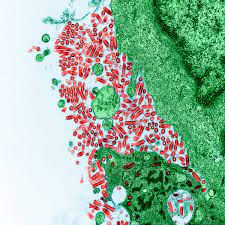The African Union Interafrican Bureau for Animal Resources (AU-IBAR) has said that fragmentation of approaches, non responsive policies to suite the various socio-economic contexts, governance issues and inadequate investments remain major challenges hampering the elimination of rabies disease.
According to report, approximately 55 000 people die each year from human rabies with rabid dogs accounting for about 94% of confirmed human infection even as global community target zero human dog-mediated rabies deaths by 2030.
Director of AU-IBAR, Nick Nwankpa said although ongoing drives to promote the one health approach for the effective control and elimination of Rabies are encouraging but resource mobilisation by partners is required for effective implementation of the measures and recommendations contained in the launched National Strategic Plan for the elimination of the dog mediated human rabies.
According to him, these efforts will bring to bear the necessary collaborations and harmonization of approaches, notably provision of quality and quantity vaccines, required to control and eliminate Rabies.
Lauding the plan, Nwankpa said the strategic plan will go along way in ensuring that Nigeria remains on track in the control and elimination of human dog-mediated rabies deaths by 2030.
Senior programme officer II TB & RCCEA Breakthrough ACTION, Dr Joseph Edor said the organisation provided technical assistance and support to the Federal Ministry of Agriculture and Rural Development and others stakeholders to develop the strategic plan.
He said, “As a social behavioural change organisation, BA-N has supported the development of communication materials about rabies prevention and control to increase awareness and education about rabies and increasing public awareness and education about rabies was identified as a key strategy in the effort to eliminate dog-mediated human rabies by 2030,.
He added that the surport was possible with collaboration with USAID, through its global health security support in Nigeria.
On his part, permanent secretary, ministry of agriculture and rural development, Dr Ernest Umakhihe expressed confident that the current synergy among the stakeholders under the One Health Initiative will continue until desired goal is achieved.





